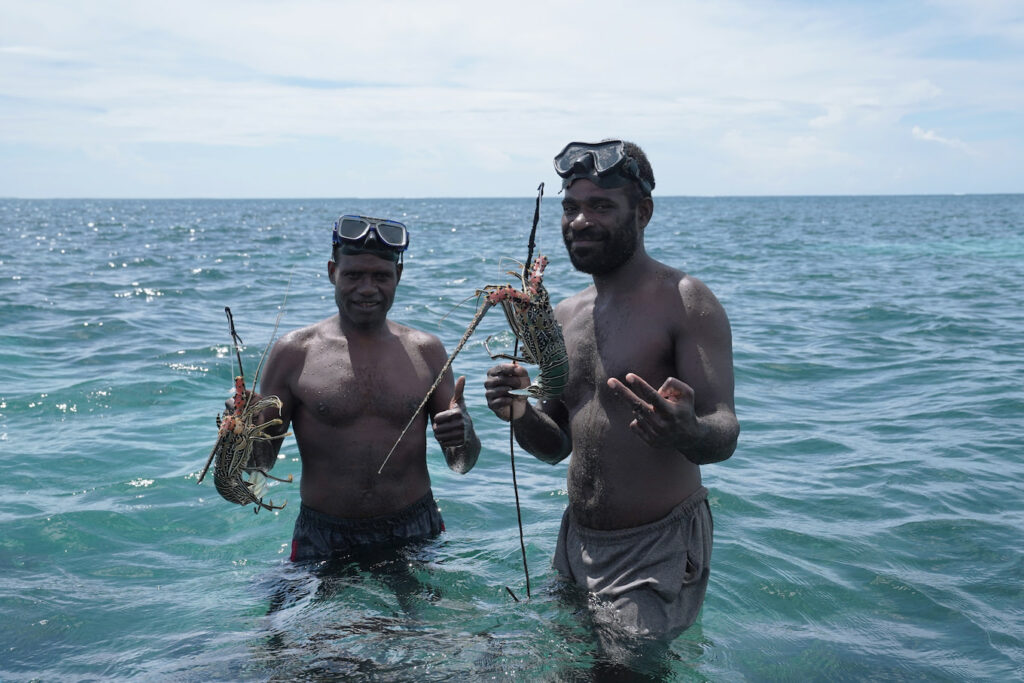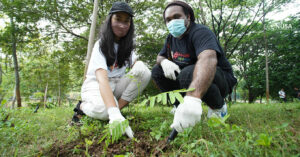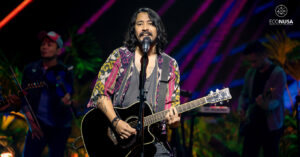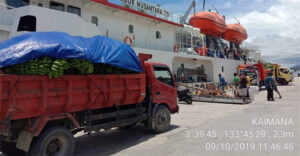
Tuesday, June 6th, 2023 was the 2nd day of the egek festival in Malaumkarta Village. The Egek Festival is a cultural festival initiated by the Moi Kelim people in the Malaumkarta Raya region which consists of five villages, namely Malaumkarta, Mibi, Malagufuk, Sawatut and Sawatolo. Egek is a tradition of the Moi Kelim tribe in managing and protecting natural resources by arranging and providing time lags for extracting natural resources in areas that have been mutually agreed upon.
On this day, locals do a traditional fishing method to get their seafood. “This morning, I and several other Moi people will do molo,” said James, a resident of Malaumkarta village. Molo is the way people catch marine products, by diving with a diving mask, which they call molo goggles, and also traditional fishing gear. This method is commonly practiced by locals all over the land of Papua, including the Moi Kelim tribe. They have long used selective traditional fishing gears that are safe for the marine ecosystem, such as kalawei or in the Moi language it is commonly called tutur or a fish spears; a gate-gate or a traditional lobster trap; as well as fish guns.
Read Also: Egek Festival: A Traditional Way of Moi Tribe in Preserving its Heritage and Nature
An opening of egek marked the permissibility to catch and consume specific marine resources by the local communities. These include lobsters, sea cucumber and lola. On the other hand, during the closing of egek, local communities can only consume fish with limited amounts.
As the day goes on, James and other Moi young people prepare their boat and fishing gear. Five boats were ready for molo. I boarded the boat with James, sulaiman, Yustinus, Yotham, Filipus, and Yohanes. When our boat was in the middle of the sea, in the waters of Kawaleng to be precise, Yustinus and Yotam were getting ready and using their molo glasses. In a few minutes, they immediately took the gate-gate and jumped into the sea. “During this open egek period, we only focus on taking lobsters, so we don’t take lola and sea cucumbers,” said James.
Shortly after they dive in and swimmed to the seabed, they spotted lobsters hiding among the corals. They immediately slid closer to the target and ensnared it with the gate-gate. Yotham surfaced, followed by Yustinus, lifting his catch. The lobster is then released from the snare and put into the net that has been prepared.
Read Also: The Story of Cacao Farmers in Papua: from being Successful to Now being Struggle
Yustinus just realized those lobsters have eggs on them. “They have eggs, so we have to release them back to the ocean,” he said while putting back his catch carefully to the sea.
Our boat moved to the other side of Kawaleng waters to catch more. Yotam and Yustinus swiftly jumped to the ocean, followed by James and sulaiman to do molo. Alternately, each of them came up to the surface carrying their catch. Unfortunately the lobsters caught by James were baby lobsters so they had to be released back to the sea.
To this day, Moi Kelim tribe still practices traditional fishing to preserve their nature. Not only using eco-friendly fishing gears, they also determine which catches are permissible and which are not to be taken. Only mature lobsters with no eggs can be catched to maintain the preservation of lobsters in their area. “Not only for the sea, these restrictions are also for our welfare, after all,” said Sulaiman.
Read Also: Best Practices from Eastern Indonesia as Capital for Blue Economy
Molo runs from morning to afternoon. As we sailed back to the shore, we stopped briefly at the floating cages in the middle of the sea to store the lobsters we caught. The cages are left in the middle of the sea to keep the lobsters alive and sold fresh to prevent sale value reductions on these lobsters.
The wealth of marine resources in Malaumkarta waters are more than a gift from God. These are sweet results from local wisdom implemented by Moi Kelim people in preserving their nature at Malaumkarta Raya that passed down from generations up to this date. “We live from our ocean, from nature. If the ocean is polluted, we will suffer. Thus it’s important for us to protect the environment,” Sulaiman concluded.







